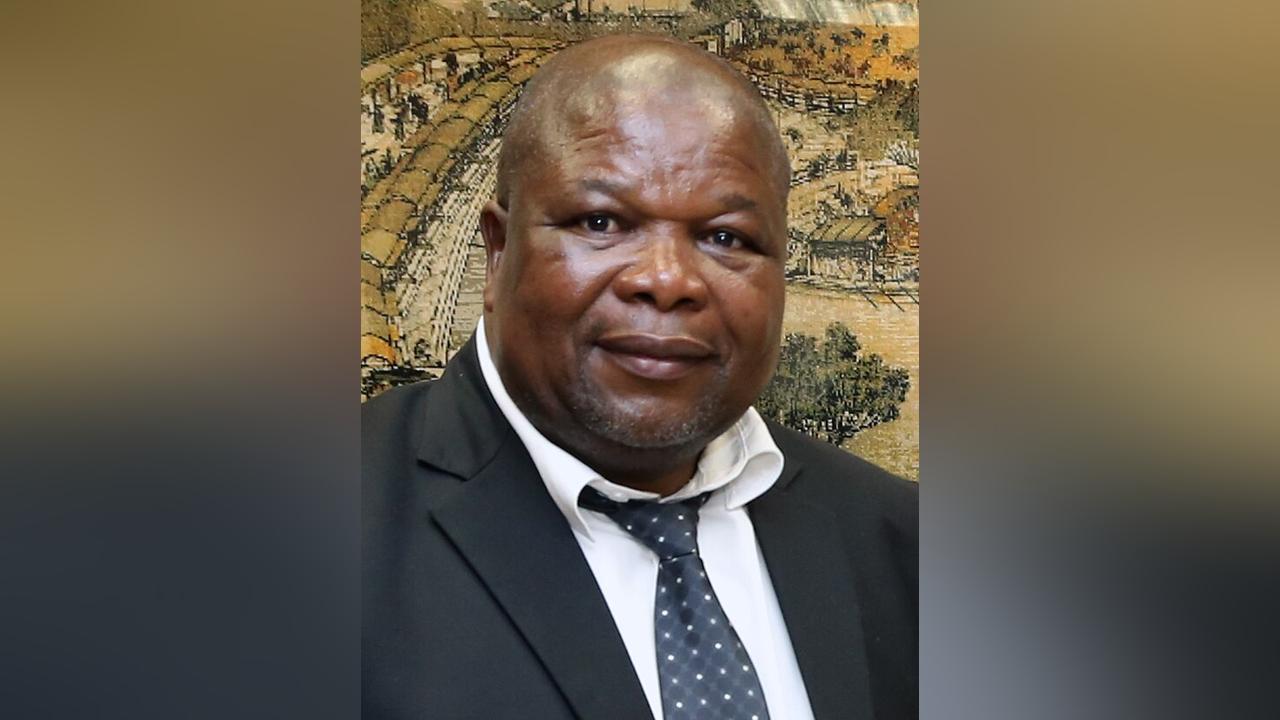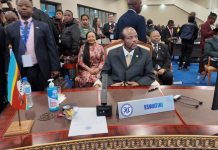Africa-Press – Eswatini. Chief Justice Bheki Maphalala has stated in no uncertain terms that no minister of state should abrogate to himself the power of administrative control and supervision over the judiciary as such conduct was unconstitutional.
This statement by the CJ comes in the wake of a declaration by Minister of Justice and Constitutional Affairs Prince Simelane, who disclosed that the ministry had not been officially notified of the appointment of five judges into the Judicial Commission of Inquiry into the Master of the High Court’s Office.
Simelane also went on to emphasise on the importance of resolving issues through collaborative efforts and engagement between all three arms of government.
The Prime Minister, Russell Dlamini also said he was following the probe with keen interest and would await an official report from the ministry of justice and constitutional affairs.
The commission, which has had four sittings already where six females and two males made oral submissions, was tasked by Maphalala to probe alleged gross maladministration, abuse of power and embezzlement of estate monies at the Master’s Office.
The judges are; Supreme Court Judge Majahenkhaba Dlamini (Chairman), High Court Judge Mzwandile Fakudze (Deputy), Judge President of the Industrial Court of Appeal Justice Sifiso Nsibande (Member), High Court Judge Maxine Langwenya (Member), Industrial Court Judge Lorraine Hlophe and acting Supreme Court Registrar Siphiwo Nyoni, who serves as secretary.
accountable
Maphalala emphasised that the judiciary was not a government department accountable to any ministry of the executive arm of government. He said the constitution does allow the judiciary to seek assistance from the other arms of government where necessary, like they do with the ministry of justice and constitutional affairs from time to time since they could not sit in Cabinet or Parliament, but that does not in any way affect independence of the judiciary.
“The judicial commission of inquiry into the affairs of the master of the High Court will continue as announced by the chief justice until it has finalised its mandate. Section 2 of the Constitution provides for the supremacy clause that the constitution is the supreme law of the land.
Accordingly, the independence of the judiciary as a third arm of government and as entrenched and enshrined in section 141 of the constitution should be respected by all,” said Maphalala in a statement issued yesterday.
The CJ mentioned that this constitutional provision provides interalia that in the exercise of judicial powers of Eswatini, the judiciary in both its judicial and administrative functions, including financial administration shall be independent and subject only to the Constitution, and shall not be subject to the control or direction of any person or authority.
interfere
Maphalala said this section of the constitution provides that neither the Crown nor Parliament or any person acting under the authority of the Crown or Parliament or any person whatsoever should interfere with judicial officers in the exercise of their judicial power.
He stated that it also provides that all organs or agencies of the Crown shall give to the courts such assistance as the courts may reasonably require to protect the independence, dignity and effectiveness of the courts under the Constitution.
“It also provides that the judiciary shall keep its own finances and administer its own affairs, and may deal directly with the ministry responsible for finance or any other person in relation to its finance or affairs.
To that extent, the doctrine of separation of powers between the three arms of government is a constitutional imperative, which prohibits the interference and over reach of the functions of the three arms of government,” Maphalala emphasised.
responsible
It has also emerged that the gazette officially appointing the commission has to date not been published yet the team continues to undertake its duties.
The chief justice when announcing the inquiry, indicated that it was being commissioned in terms of Section 139(5) of the Constitution of the Kingdom of Eswatini Act No.001 of 2005, which reads; “subject to the provisions of this Constitution, the Chief Justice is the head of the Judiciary and is responsible for the administration and supervision of the Judiciary.”
The Law Society of Eswatini recently alleged that Maphalala did not have power under the laws of the country to establish a commission of inquiry.
Instead, it stated that the only law that governs commissions of inquiry and the mode of holding such commissions of inquiry was the Commissions of Inquiry Act No. 35 of 1963.
Section 3(1) of the Commissions of Enquiry Act reads: “Appointment of commissions of enquiry and mode of holding enquiry. Any minister may, by notice in the gazette, issue a commission appointing one or more commissioners, and may therein provide that one or more members shall constitute a quorum for the purpose of the enquiry.”
The society further said the legal authority to establish a commission of inquiry into the Master’s office vested with the minister for justice and constitutional affairs, as minister responsible for the Judiciary and the Administration of Estates. When asked what would be his reaction to the CJ’s statement, Prince Simelane humbly declined to comment.
I’m adhering to Sibaya directive – CJ
CJ Bheki Maphalala has reiterated that the Judicial Commission of Inquiry into the Master of the High Court’s Office would continue unabated because it was a directive from Sibaya.
Maphalala said Emaswati in the recent Sibaya of 2023 expressed serious grievances with the operation of the Master’s Office and called for an inquiry into its operations.
“Section 232 of the constitution provides that the people, through Sibaya constitute the highest policy and advisory council of the nation and that Sibaya functions as the annual general meeting of the nation and that it may be convened anytime to present the views of the nation on pressing and controversial national issues.
The office of the master falls under the formation and administration of the judiciary and accordingly the judiciary is constitutionally obliged to follow the directive given by Sibaya,” detailed Maphalala.
The CJ went on to state that in view of the constitutional provisions entrenching independence of the judiciary, the provisions of the commission of inquiry act were applicable to the executive arm of government and its affairs and has no application to the judiciary.
“Accordingly, the Judicial Commission of inquiry has been established in accordance with constitution,” he emphasised.
The commission conducts its business at the Industrial Court of Appeal premises at the fourth floor of Intfutfuko Building in the capital city.
Members of the public who may want to make arrangements for oral or written submissions can contact Secretary Siphiwo Nyoni on 7606 3592. It was stipulated that calls should be made from 8am-5pm, from Monday to Friday.
For More News And Analysis About Eswatini Follow Africa-Press







